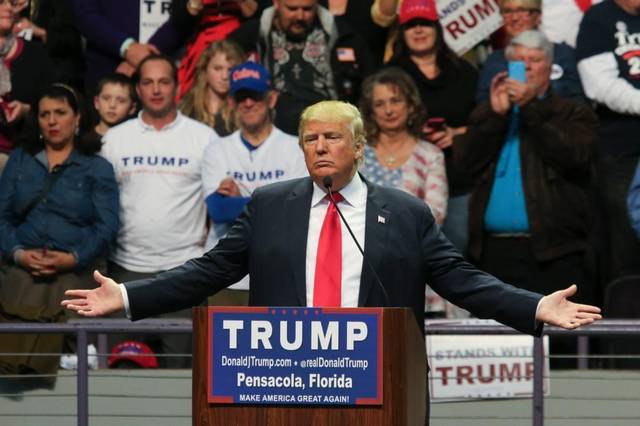
Beyond Free Speech?
securewebsite 0 Comments Uncategorized
The first amendment of the United States Constitution guarantees each of us the freedom of speech except in certain instances. Those instances would include speech that creates a clear and present danger, incites violence or disrupts the peace, or amounts to libel or slander. The question is, whether or not Donald Trump’s rhetoric about a rigged election is protected speech under the first amendment or does it fall into one of the categories of unprotected speech?
In his public speeches and twitter rants over the past week, Donald Trump has stated repeatedly that the election is being rigged by the media to help elect Hilary Clinton, additionally he has stated that widespread voting fraud is happening at polling places across the country despite the fact that there is no evidence to support his claims. In actuality, his claims have been debunked by experts and polling operators, so is this even protected speech? Let’s start with whether or not his rhetoric is creating a clear and present danger. Speech is no longer protected if it creates a clear and present danger to the public or leads to illegal actions. While there is no evidence that Mr. Trump’s speech has created any present physical danger, it could be argued that his speech is leading to mental danger in the sense that it causes people to distrust the country’s democratic process. It places in the people’s minds that their votes may be stolen from them, which could possibly cause a disruption of the peace and even lead to some individuals committing crimes. The problem with this argument is that it is purely hypothetical and does not lead to the level of being a probability under the current circumstances.
The next question is whether or not Donald Trump’s speech is defamatory. Defamation comes in two forms: (1) Libel, which is written; and (2) Slander which is spoken. When analyzing written and spoken statements for defamation, the following elements must be met in order to make a prima facie case:(1) it was published, (2) false, (3) injurious, and (4) unprivileged. Based on these elements it would appear that Trump’s speech is certainly defamatory and therefore unprotected speech. (1) His statements have been published! He has spoken them publicly and has tweeted them out to the public as well. (2). His statements are false. Experts as well as many polling places have come out and made it clear that his statements about a rigged election and voter fraud are baseless and irresponsible, and in spite of the truth, he continues to make these false statements. (3) It could very well be argued that his statements are injurious. Various media outlets could try to link lower ratings to the rhetoric that may have created distrust among many viewers. If there have been incidents at the polls that have caused destruction, this could be considered injurious as well. The problem here is that the arguments that could be made for this particular element are speculative and therefore may not raise to an arguable level of injury. (4) The statements by Trump are not privileged, that means that they were not made between parties in confidence to be kept secret. For example, statements made between an attorney and their client is considered privileged and therefore is protected even when defamatory.
While one could say that Trump has defamed the media, meeting the elements to make a prima facie case is pretty difficult because one would have to stretch their imagination and evaluate the situation on a hypothetical basis to make the argument work. Additionally, because Trump lumps all of the media outlets together when making his statements, it is difficult to determine which media outlets Trump is accusing of rigging the election. Defamatory statements about a group or a class of people are typically not actionable unless the group is so unique that one could link the statements to that particular group.
Let’s face it, while most people have tired of Trump’s dangerous rhetoric, it is completely protected speech under the first amendment of the United States Constitution at this point. Whether or not it should be protected because of the possible problems boiling beneath the surface is a totally different discussion, but for now, he’s in the clear folks. Happy voting!